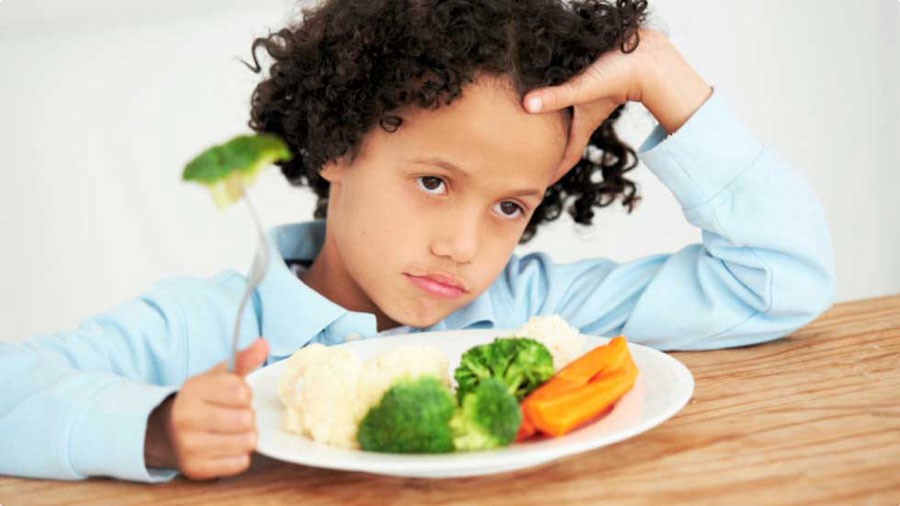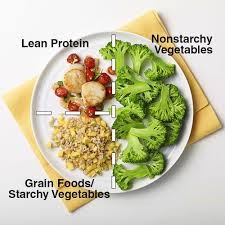
The most common reasons for children to be picky eaters are
1. Behavioural – they may be too busy and distracted to sit down for a meal and finish it
2. Filling up on juices or fizzy drinks or other “empty calories”
3. Constipation – if the tummy is filled with faeces, there is not much room left for food
4. Low levels of zinc, B12 or iron which are all needed for a healthy appetite
So how do you figure out why your child is picky and what can you do about it?
1. From about 2-3 years toddlers typically become more choosy about their food. This is a period when they do not grow quite as fast as during their first 2 years; they also discover their power of no and are generally quite busy – there are far too many things to discover and explore in the world to allow you time for sit down dinners. Don’t despair – your child will most likely start to eat more variety again by the time he/she is 4 years old. If your child is happy to graze and pick up food while distracted, he may just need a little time to get used to regular meals. There is nothing wrong with grazing. In the long run it is desirable for children to take part in family meals. Rather than forcing your child to sit still, make it fun: have your toddler in a comfortable high chair at the table or if he is very wriggly in your lap for as long as he/she is happy there, allow them to play with food and make the meal an interactive game and above all: Relax. Don’t stress out. Children pick up on your cues and if you are having a good time at the dinner table tasting healthy foods, your child is more likely to enjoy being there and to sample those yummy foods as well. Over time he/she will sit at the family table for longer and longer and join in the fun and conversation.
It is a good idea to sit your child at the table as soon as they can sit up. Even if they are not eating your food yet, this gets them used to eating as part of the family unit.
2. Your child’s tummy is about the size of their fist. Just visualize how small that is and think about how to fill that little pouch most efficiently with nutrients that allow your child to be energetic, grow and develop. You can fill it with healthy sweet potato, broccoli and beans or you could give your child a big glass of juice and – surprise surprise – he/she won’t be hungry for dinner.
Do not allow your child to fill up on fizzy drinks, juices, milk, hot chocolate or other high calorie drinks. Give them only filtered water to drink, up to half an hour before a meal and again ½ hour after the meal. They should ideally not drink with meals, in order not to fill up the stomach with liquid and also to avoid diluting the digestive enzymes. A few sips of water are of course fine with a meal.
 3. Constipation is a common problem in childhood. Signs of constipation are either passing daily bowel motion less than once daily, or passing only small hard pellets. The reasons are generally too little fibre and water in the diet. This is easy to correct by giving more water to drink (and nothing else, except breastmilk for those who are breastfeeding) and more vegetables, fruit and organic whole grains. Replace white rice with brown rice, white pasta with wholegrain pasta. The plate should be filled half with vegetables, a quarter whole grains and a quarter of lean protein, which could be meat, fish or even better: non-constipating legumes (lentils, chickpeas, beans, tofu, tempeh). If your child is constipated, replace the meat with legumes several times a week. For stubborn constipation add a serving of coconut kefir or a probiotic and if that does not help see your doctor!
3. Constipation is a common problem in childhood. Signs of constipation are either passing daily bowel motion less than once daily, or passing only small hard pellets. The reasons are generally too little fibre and water in the diet. This is easy to correct by giving more water to drink (and nothing else, except breastmilk for those who are breastfeeding) and more vegetables, fruit and organic whole grains. Replace white rice with brown rice, white pasta with wholegrain pasta. The plate should be filled half with vegetables, a quarter whole grains and a quarter of lean protein, which could be meat, fish or even better: non-constipating legumes (lentils, chickpeas, beans, tofu, tempeh). If your child is constipated, replace the meat with legumes several times a week. For stubborn constipation add a serving of coconut kefir or a probiotic and if that does not help see your doctor!
4. If your child has signs of nutritional deficiencies, ask your health practitioner for an assessment.
A pale face and low energy may indicate low iron or B12 levels
White spots on the fingernails, a low frustration tolerance, slow skin healing or recurrent infections may indicate low levels of zinc.
Consult a qualified naturopath for an assessment of any nutritional deficiencies. Your naturopath will be able to prescribe supplements suitable for your child and also recommend foods high in essential nutrients. The soils in Australia and New Zealand are low in zinc. Children need more zinc during growth spurts, so if they show signs of a deficiency they may need a supplement for a period of time (under the supervision of a health practitioner as you can overdose on zinc).
General recommendations for picky eaters
- Have family meals and make them fun – do not cook a separate meal for your children.
- Do not allow your child to fill up on fizzy drinks or juice before a meal
- Feed your child a diet high in vegetables, whole grains and fruit to promote healthy digestion
- Make sure your child has optimal levels of zinc, iron and B12, as these affect appetite.
Written by Dr. Leila Masson.
For more in-depth information see Dr. Leila Masson’s book “Children’s Health A-Z”, (for orders in Australia) with useful advice on common children’s health issues and practical tips how to get your child healthy quickly in the most natural way.
